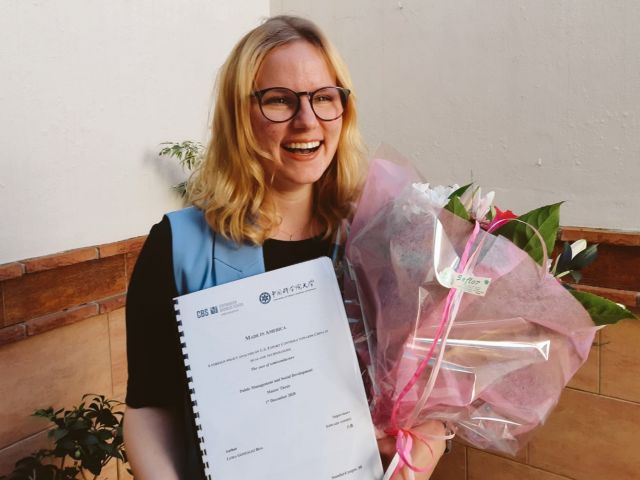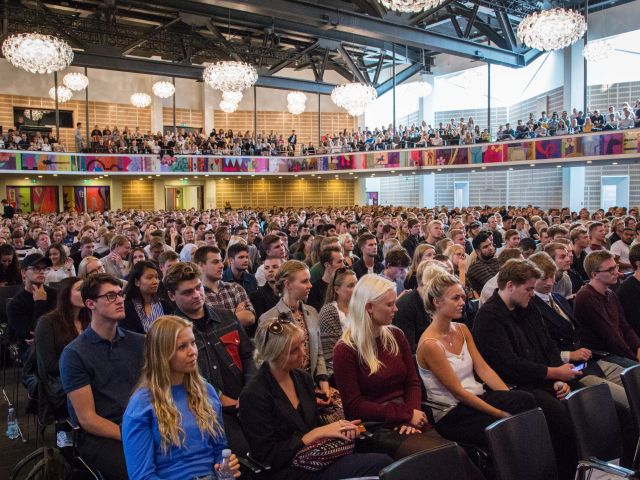Job wanted: Launching a career during a pandemic

(Illustration: Giphy.com)
For the first time, I entered a phase of uncertainty at the beginning of March when I registered as unemployed. In my last post, I wrote that for changing the field of study you need good friends, ice coffee and patience. That was true in my case. But there is something else you need to succeed when it comes to big changes: great determination.
In my blog posts, I often put my effort into portraying the good things as my attempt to motivate and inspire you. But things are not always easy, and if I had to define job hunting in one word it would be struggle.
Not only is job hunting already frustrating enough on its own, but additionally you have to smile through the super-positive comments of everyone in your circle “You got this”, “Your CV is great, I am sure you will find something in no time”, “Just hang in there” – like I have any other option.
Our generation has lived through two economic crises and we still need to hear how good this economic system is.
When Covid-19 first emerged, I started to think about graduation and entering the job market during these uncertain times of the pandemic, lockdowns and economic fallout. And it gave me great anxiety. So, how am I coping with this new – and hopefully – temporary phase of life? One thing is that I have shifted from ice coffee to milk tea… but that is not the only thing.
The hierarchy of needs in job hunting
I am going to fall into my own trap of despising motivational quotes and dive into motivational theories, specifically I will use the hierarchy of needs. Introduced by Abraham Maslow in 1943, it is a five-tier model of human needs – hierarchical levels – within a pyramid. From the bottom of the hierarchy upwards, the needs are: physiological, safety, love and belonging needs, esteem, and self-actualization.
According to this theory, the needs lower down in the hierarchy must be satisfied before individuals can attend to needs higher up[1]. This theory has been applied to a wide range of different fields, and it is how I structured my job-hunting strategy.
Physiological needs: Solving sleep deprivatio
I have spent almost countless nights without sleeping, thinking of being unemployed. After many attempts to put into words what I was scared of, I realized I am not that scared of not having a job (thanks to the generous welfare state of Denmark that is), what truly scares me is not knowing where I will be next. And not just in terms of location, but which role, company, organization…
After handing in my thesis, I felt empty. For the first time in years, I did not have academic responsibilities. During my studies, I didn’t think of my free time as free time, as I always knew I could be investing extra hours in studying – I didn’t always do it, but those academic responsibilities where always there ready to fill moments of boredom.
Now that is over – and while I am aiming to get a PhD in the near future, I don’t exactly know when and if that will happen. Consequently, I had to develop a new coping mechanism for all the new free time that was available.
I found that the key – in my case – is to keep yourself busy.
And I don’t mean busy as in applying for jobs. Finding suitable jobs and making applications is an important part of job hunting but gives little mental stimulation. In my search for inspiration, I went through my “New Year’s resolutions” from last year and wrote down everything I didn’t get the chance to fulfill, given the time constraints and I started doing those things.
Now I spend at least an hour per day trying to make my past self happy by doing an online course in R, spending half hour per day practicing Chinese, reading the books on the Obama reading list (for some reason that list is my go-to when trying to find new books… don’t ask me why), and engaging more in online activism. The only one I can’t fulfill is to start boxing, but just wait until gyms open again.
Safety: Are we safe? Are we healthy?
This need covers personal safety and financial stability too. It is often defined as job stability. In order to function, we need to feel safe in our environment. And I didn’t feel safe in the unemployed category at first. Whether it is because of the embedment in our culture that if you don’t have a job, you are a failure, or because of my own personal vision of myself, I kept thinking that I was not good enough for any job.
Yes, I have a good CV, but do you know who else has a good CV? Every millennial. Because we have to. Our generation has heard for years that we need to build a good CV, but building a good CV isn’t easy. We only see the successes of the people around us, and not the hard work behind them.
It’s true I got an internship at UN last year. What not everyone knows is that I sent more than 40 applications and I got less than 10 responses. The situation repeats itself in job hunting, but with the added frustration of entry level jobs requiring +3 years of experience plus good grades plus international experience plus languages. I wonder if the people who set all these requirements fulfilled them when they got their entry-level job.

(Illustration: giphy.com)
As such, I decided to seek shelter in podcasts about job hunting and my a-kasse (unemployment insurance fund). While I have not yet attended my introductory meetings with them and with my job center, I decided to explore their website and found that you can get personalized career counselling and a list of all the webinars they offer. Webinars are a great starting point to change your CV, cover letter structure, and getting the most out of LinkedIn networking, to name a few.
But after you put into practice the advice from the webinars, it is a very good idea to schedule a career counselling session in which they will give you personalized advice on your CV.
After screening my CV, they advised me to slightly modify my CV, so it tells my story in a manner that catches attention in less than 10 seconds. Stories are the most effective tools for demonstrating our passions and talents. This includes our research interests, key competencies and volunteering activity, for example. Another important tip: be creative, make your CV stand out. I went for dark colors because I was not brave enough to set it in pink, but regardless of the color you choose, don’t just use black & white.
Moreover, under this need, I also found that I had been neglecting my health during 2020, given the stress of writing my thesis and the pandemic. So, I set my priorities and I was finally able to develop and maintain a skincare routine and do those exercises that the physiotherapist recommended back in October. I still hate these two tasks, but I figured that this is the moment to start taking care of my health.
Love and belonging needs: the most valuable resource, the people around us
The greatest resource we have is always our family, partner & friends (not necessarily in that order!). Remember how the Beatles very wisely wrote a whole song on “I get by with a little help from my friends”? Well, they were right.
During the past months, I have voiced my concerns with my closest friends, who have been or are going through the same as me, with my partner and with my sister.
Esteem: avoiding the feeling of failure
Esteem is referred to as a “feeling of accomplishment” and the “need to be recognized”. I am not going to lie, I sometimes find it hard to feel accomplished during these times, especially when I receive a rejection email.
That is why I decided to create an Excel sheet with a color system – well, and the fact that I needed some structure in this little chaos, so when I say in my cover letter that I am a structured person at work, I actually mean it. In this Excel sheet I list all the jobs I have already applied for and the ones I still want to apply for.
Later, I put each job with a different color based on whether I made it to first and/or second interview, whether it was a direct rejection, and so on. As I started not so long ago, it is quite a short list so far. And as I am still unemployed, it means that, so far, it has either been no answer or rejection – but dividing it into other colors than red depending on whether I made it to the interview motivates me as, no matter how small the comfort is, it shows that my CV/Cover letter can gain attention and that I have relevant skills.
This system doesn’t make me feel fully accomplished but, at least, it makes me not feel like a failure and gives me some hope, which is good enough for now.
Last but not least: self-actualization
As the theory defines, at this level, “the need refers to the realization of one’s full potential. The desire to accomplish everything that one can, to become the most that one can be.” As hard as it is to find achievements in rejection emails, I came to realize that maybe I will only reach this level when I get a job.
Nonetheless, as long as I keep the other needs satisfied, I can continue working on this one by sending the best applications I can to the jobs that motivate me. As my friend Selma says, slow and steady wins the race.
Starting a career in a changing world is exhausting. Sometimes I am very tempted to answer Why do you want this job? with The salary matches my motivation of not starving to death. But by taking care of other needs, the frustrating process becomes more bearable.
And for those days where I need to cross off some jobs from my Excel sheet in red, I will always have my friends, milk tea and whatever is left of my patience.




































































































































Comments